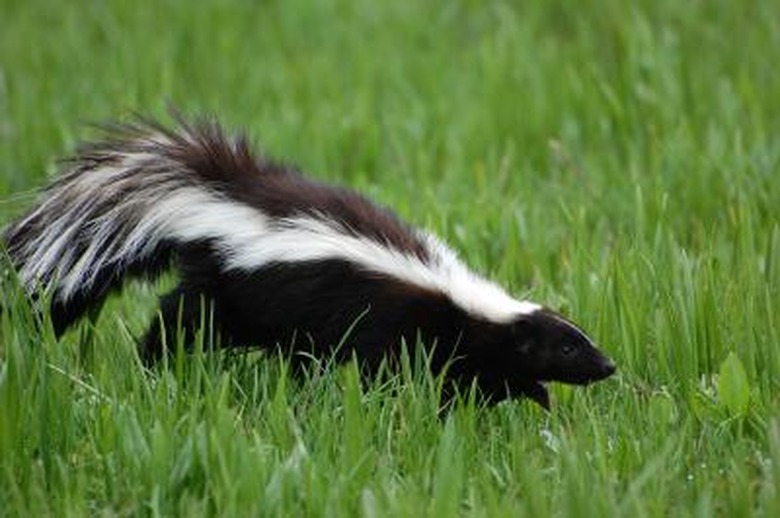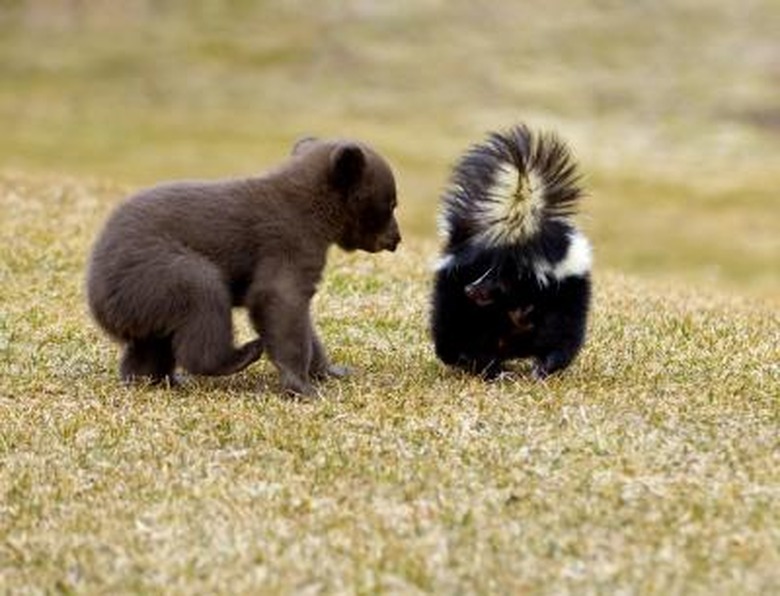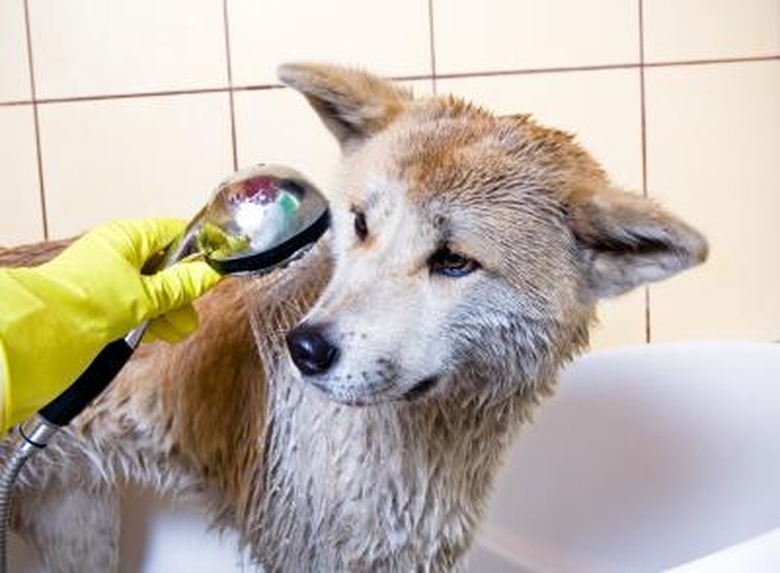How Many Times Can A Skunk Spray?
The first thought that comes to mind when people think of skunks is the smell of their spray. The animal's pungent odor is hard to remove, so people tend to become afraid if they spot a skunk in the wild. When skunks spray, they can shoot the odorous mist multiple times in a row at their predator. While it may just seem gross and unpleasant to us, spraying is a skunk's defense when he is afraid. The small mammal releases the odor to repel predators.
For humans, skunk repellent remedies can be applied to the outside of the home to keep these animals away from you and your pets. If you or your pet get sprayed by a skunk, some home remedies can help reduce the smell. Contact your veterinarian to make sure your cat or dog isn't sick after being sprayed by a skunk.
Some background on skunks
Some background on skunks
Weighing between 3 and 10 pounds, skunks are a black and white member of the Mephitidae family, which includes skunks and stink badgers. The striped skunk is most common, but they can have varying patterns, including spots and swirls. Found from central Canada to northern Mexico, these omnivores are a valuable part of the ecosystem, feeding on invasive species of bugs, plants, and rodents.
Skunk spray is composed of thiols, or the organic compounds sulfur and hydrogen. The elements that make up the spray are very vaporous, so it spreads quickly and can be detected from a far distance. When skunks spray a human or another animal, the scent grows stronger, expanding farther when water is added.
Why skunks spray
Why skunks spray
Like cats, skunks hiss when they feel threatened. They may also charge. Skunk hissing is a sign of an impending spray, which they can start doing at 8 days old. Most wild animals know the skunk's stripe and recognize their smell, so they tend to be left alone aside from humans and domestic pets.
Skunks can spray five or six times in a row, and the mist can travel up to 15 feet on its own if not farther with the assistance of the wind. After a skunk sprays, she has to wait between eight and 10 days for her anal glands to be replenished. At that point, she can spray again, and the cycle continues this way throughout her whole life.
Removing the odor of skunk spray
Removing the odor of skunk spray
Skunk spray is not only potent but it can also be harmful to pets. Cats and dogs who are sprayed can develop allergy and gastroenterological symptoms. A spray to the eyes can cause temporary blindness. If your pet gets sprayed by a skunk, you should set up a veterinarian appointment immediately.
A wash of three parts hydrogen peroxide to one part baking soda and a teaspoon of dish soap can help clean and neutralize the odor if minor spraying occurs. This mix can be applied and left on for five minutes before rinsing it off. Despite claims, tomato soup is not an effective way to eradicate the stench of skunk spray.
Skunk repellent and deterrents
Skunk repellent and deterrents
From household items to bright lights and simply getting rid of their home, keeping skunks away can be accomplished in a natural and humane way. Putting a motion-sensing light in your yard can scare off the skittish weasels if they decide to explore your yard at night. Keeping trash out of reach is also a good measure to take, but there are also natural deterrents that you can use to keep away skunks. Used cat litter or castor oil can be applied around the perimeter of your home. Some sources claim that over-the-counter sprays made with predator animal urine (like coyotes, for instance) work, and other sources claim they don't work. It could be worth trying.
You can try to fill their den with dirt, but watch out for babies. To check for their presence, start by filling the hole with leaves and loose paper to encourage them to leave without trapping them. If the hole is reopened in the morning, they are likely still in there. If it remains untouched, it can be closed up. Pest control companies can also help you get rid of a skunk issue.
References
- HGTV: Making a Stink: How To Keep Skunks Out of Your Garden
- The Humane Society of the United States: What to Do About Skunks
- North American Nature: Why Do Skunks Spray?
- Minnesota Department of Natural Resources: Striped Skunk
- Britannica: Skunk
- Iowa Department of Natural Resources: Cool Things You Should Know About Skunks (Yes, Skunks)


